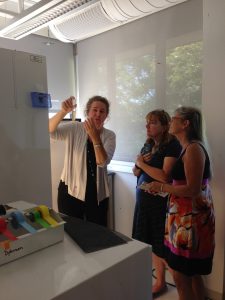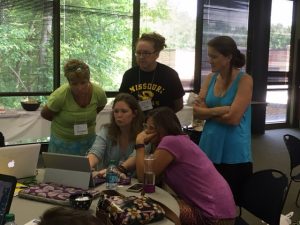What is the Bigger Picture? – Scientist-Teacher Partnerships
It all started in 2003 after spending a week listening to teachers tell us what they would want in an ideal professional development workshop… connecting with researchers – to meet them and hear their stories both professional and personal – was high on the list. Another request was to have the time to work with the data from the researchers in developing activities with other researchers. And the EARTH workshops were born!
Education And Research: Testing Hypotheses is an ongoing professional development workshop focused on bringing educators and researchers together to bring real research data into the classroom. The workshop is 4.5 days long and is open to educators from all grade levels and all subject areas. It is amazing every year to see the creative activities created during the workshop based on real data.
One of my favorite activities from the 2016 workshop integrates a wide variety of polar research data with art in an activity titled “What is the Bigger Picture” that encourages students to think about and engage in climate change issues.

Seeing plankton samples up close and personal with Dr. Sonya Dyhrman in her lab at Lamont-Doherty Earth Observatory, Columbia University.
When asked what aspects of the workshop were most appealing or interesting, participants from 2016 responded:
Meeting inspirational colleagues and scientists, having up to date science and data to take to the classroom as well as experiences to share with the students. I also have great lessons to use both from this workshop and from the rubric presentations.
Networking with other teachers and having the scientists with us for the entire workshop was amazing. This year’s science presentations were incredibly rich and inspirational. I really feel like I learned more this year, with the focus on Polar science than any other workshop I’ve been to.
Interactions with other teachers and scientists; finding resources to use with students and how to use them.
I really liked the teacher/scientist interactions and having the scientists share their research.
Thank you!! The whole experience was fantastic. As someone who doesn’t have a science background, it was a lot of information and learning. I think it is so important that elementary teachers be involved in this work even if we have to teach other subjects as well. I hope that you will continue to include us 🙂 We may not have the depth of knowledge, but we are instrumental in creating passion and interest in students to want to continue into math, engineering and science areas. Thank you again for everything!! I can’t wait to use this.
The National Science Foundation funded POLAR-Interdisciplinary Coordinated Education program co-hosted the 2015 workshop and will co-host the 2016 workshop along with the Center for Dark Energy Biosphere Investigations so the research data will focus on polar and/or the deep biosphere for the 2016 workshop.
Applications for the 2016 EARTH workshop in Monterey, California are now being accepted (deadline is February 14th, 2017), please come and join in the fun.
A requirement of the application process is to trial an EARTH lesson and complete the online feedback rubric (Note: this will take you to a new page on SurveyMonkey). All application materials and questions can be sent to EARTH.
Complete applications should include the completed rubric and a cover letter than includes the following information: your school/district, grade level/s and subject/s taught, and email/phone contact (both school and personal as the school email system sometimes rejects our group emails). Please also address the following questions: Why do you want to be selected for this workshop? What makes you the ideal candidate? Include any other information that you think might be useful to us as we make our decisions.


